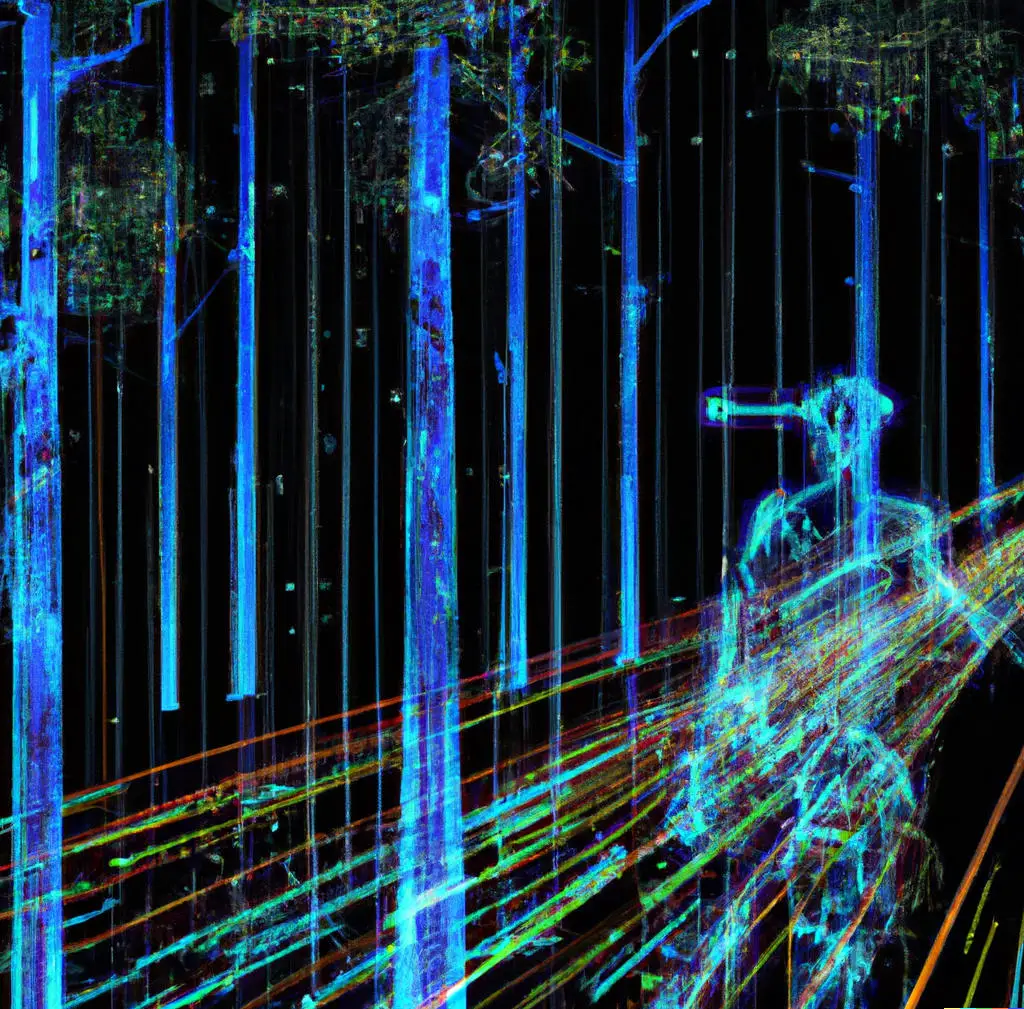The article titled “Nature Meets Tech: How Ecological Principles Could Reinvent AI” discusses the potential synergy between artificial intelligence (AI) and ecology. Researchers argue that drawing inspiration from ecological principles can lead to more resilient and socially responsible AI systems. Conversely, AI can assist ecology in various ways, including analyzing large datasets and identifying complex relationships.
Published in the Proceedings of the National Academy of Sciences, the paper emphasizes the need for collaboration between AI and ecology to address global challenges like disease outbreaks, biodiversity loss, and climate change. It highlights the limitations of AI and how ecological knowledge can help overcome them.
One key area where ecology can benefit from AI is in synthesizing vast amounts of data and identifying elusive connections within complex systems. Unlike traditional statistical models, AI can handle diverse data sources and uncover previously unrecognized interactions, including socio-cultural factors.
On the other hand, ecology can inspire more robust AI architectures. Ecological systems’ resilience can guide the development of AI models that are less prone to issues like mode collapse, where AI systems forget previous training when exposed to new data. Such AI improvements could lead to more generalized intelligence, enabling reasoning and connection-making beyond specific training data.
Additionally, ecology can shed light on the emergent behaviors observed in large language models like ChatGPT, such as generating false information or “hallucinations.” By examining complex systems holistically, ecology can help understand the mechanisms behind these behaviors.
The article emphasizes the importance of collaboration between AI and ecology to drive innovation in both fields. It discusses how such collaboration can enhance societal responsibility by integrating diverse knowledge systems and addressing biases in AI models.
In conclusion, the convergence of ecology and AI research has the potential to bring transformative perspectives and solutions that can benefit both fields and society as a whole. This collaboration is seen as essential for thriving in an uncertain future.
Table of Contents
Frequently Asked Questions (FAQs) about Ecology-AI Synergy
What is the main concept of this article?
This article explores the potential collaboration between ecology and artificial intelligence (AI) to create more resilient and socially responsible AI systems, while also leveraging AI to address global ecological challenges.
Why is this collaboration between ecology and AI significant?
The collaboration is significant because it can lead to transformative solutions for complex global issues such as disease outbreaks, biodiversity loss, and climate change. It aims to overcome the limitations of current AI systems and enhance their societal impact.
How can AI benefit ecology, according to the article?
AI can benefit ecology by analyzing large datasets, identifying complex relationships in ecological systems, and helping to uncover previously unrecognized interactions, including socio-cultural factors. It can also generate unique hypotheses for ecological research.
In what ways can ecology inspire improvements in AI?
Ecological principles, such as resilience and adaptability, can inspire more robust AI architectures. This includes addressing issues like mode collapse and enhancing AI’s ability to generalize intelligence, enabling it to make connections beyond its training data.
What are some examples of the potential impact of this collaboration?
One example is the use of AI in ecology to predict disease transmission and better understand ecological systems. On the other hand, ecology can help address issues observed in AI, such as the emergence of false information in large language models like ChatGPT.
How does the article emphasize social responsibility in this collaboration?
The article highlights the importance of integrating diverse knowledge systems and addressing biases in AI models, ensuring that AI and ecology work together responsibly to benefit society.
What are the challenges in achieving collaboration between AI and ecology?
Challenges include bridging the gap between two distinct disciplines with different vocabularies and scientific cultures. The article acknowledges that this collaboration is an ongoing process but is essential for future advancements in both fields.
More about Ecology-AI Synergy
-
Proceedings of the National Academy of Sciences: The source of the article discussing the collaboration between ecology and AI.
-
National Science Foundation: The organization that provided funding for this research (DBI Grant 2234580, DEB Grant 2200158).
-
Cary Institute’s Science Innovation Fund: Another funding source for the research.
-
Lamont-Doherty Earth Observatory Climate and Life Fellowship: A fellowship program that contributed to the research.
-
OpenAI: Mentioned as the creator of ChatGPT and the importance of fresh ideas in AI development.



3 comments
interesting stuff here, AI and ecologhy working tgthr, thts a gud thing 4 the wrld, need moar collab.
dis jurnl, pritty cool, talkin bout AI n ecology, shud do mre of dis, 4 a bettr planet!
w0w this a cool ideea, like AI helpin’ out w/ ecolgy stuff, and ecolgy make AI strongr? gr8!